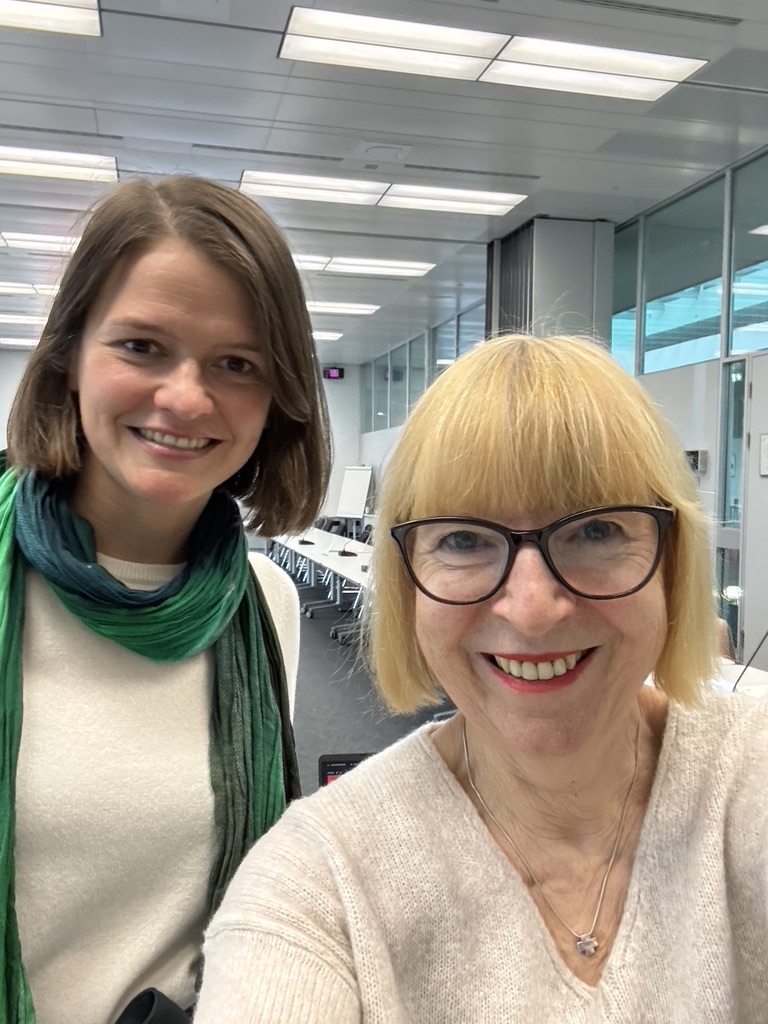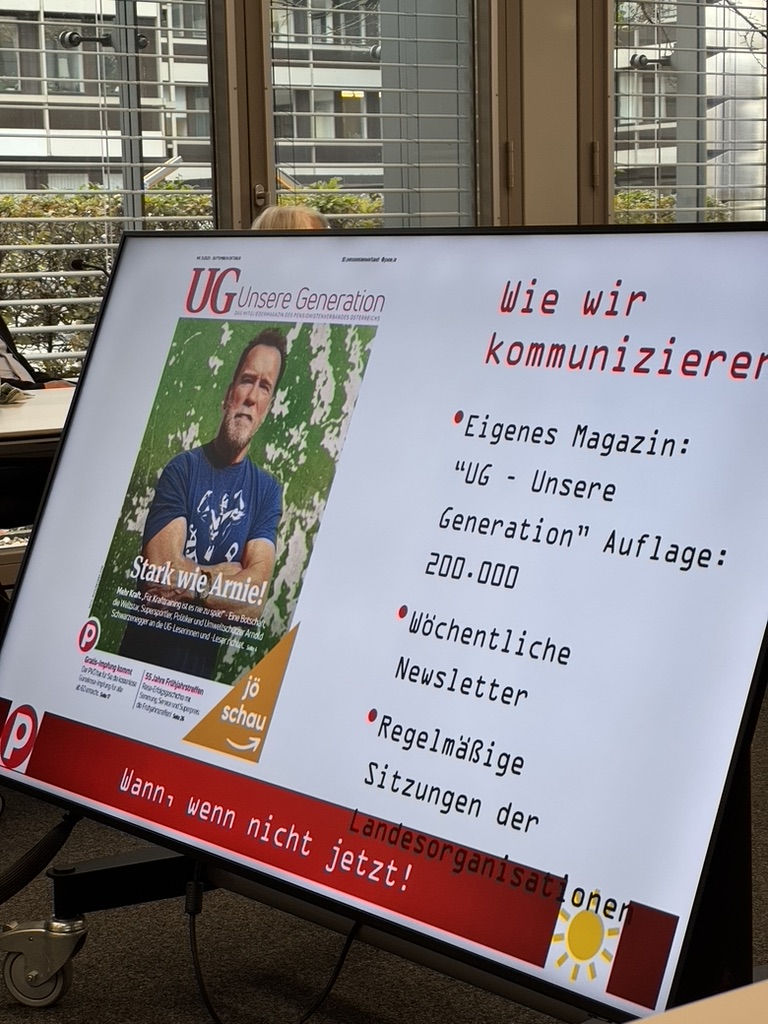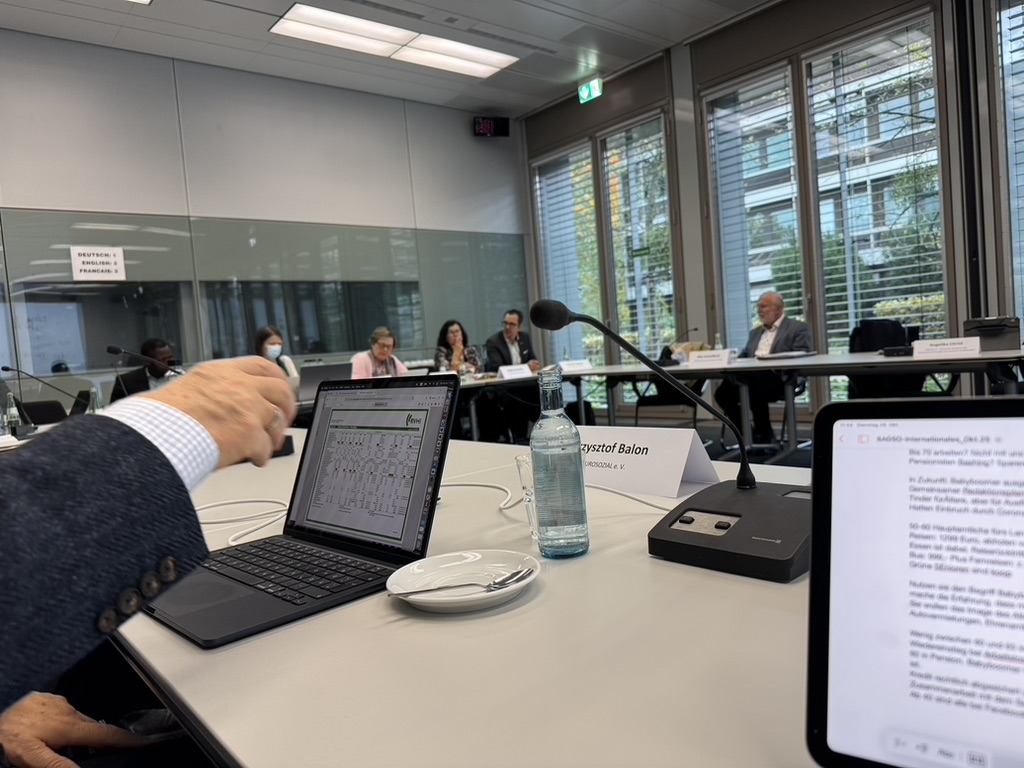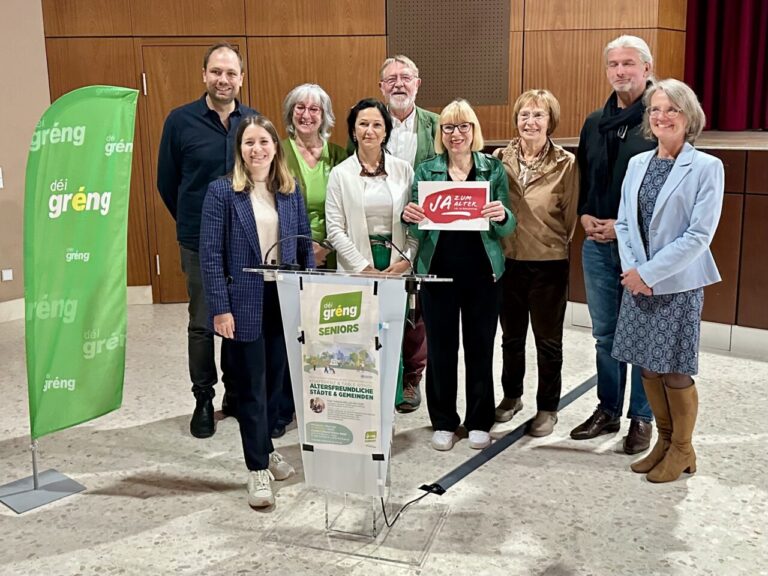
Möller-Metzger
The Federal Association of Senior Citizens’ Organisations (BAGSO) had invited participants to Bonn, former capital of Germany: The ninth meeting of the International Working Group was held this time on the grounds of the federal ministries, just outside the city centre. Access is only granted with prior registration and ID. The meeting then began in the green high-rise building of the Ministry of Agriculture. Ina Voelker from BAGSO and Barbara Kahler, just been elected to the European Economic and Social Committee.
The committee is intended to serve as a bridge between citizens and EU institutions, and Barbara Kahler will soon report on what is happening there in terms of content.
However, the BAGSO meeting began in Austria, as the Pensioners’ Association was visiting Bonn.
There are 2.5 million pensioners living in Austria, 280,000 of whom are members of the association with 1,650 local groups. This means that it is possible to exert a little pressure on politicians. For example, to enforce inflation compensation or to ensure that pensioners in Austria who need a loan to buy a house or flat are not rejected by the bank on the grounds of age.
Association members receive support with care allowance applications, consumer issues, tax returns and social benefits such as heating subsidies, and also receive legal advice if necessary.

Good public relations work that puts an end to ageism is important to pensioners. They want to promote a cooler image of old age, for example through social media campaigns or by featuring Arnold Schwarzenegger on the cover of their magazine. They have digital coaches who can be found via Google Maps and now want to develop a kind of tinder for joint activities
They demonstrated in front of Parliament for inflation adjustment and were featured in all the daily newspapers. They want to make it clear that older people are not a burden, but an economic factor. That is why they are now commissioning a study: what would it cost if the voluntary work of older people had to be paid for, such as looking after grandchildren, working in clubs, volunteering with the fire brigade… An active association!
Then there was an update on the Convention on the Rights of Older Persons. The open working group on ageing issues ceased its work last year. This is a positive sign, as the Human Rights Council can now deal with the results. The working group made several recommendations for a convention.
The UN General Assembly also had to deal with this and has now instructed UN bodies to take the working group’s recommendations into account. The UN Human Rights Council works in Geneva, and a new working group is being set up that will meet twice a year. Interest groups can participate in this.
The constituent meeting will take place in February, and the intention is to follow the example of the UN Committee on the Rights of Persons with Disabilities. The meetings are to be hybrid, as many people want to get involved. Everything is to be documented transparently.
The Madrid International Plan of Action on Ageing (MIPAA) recently showed that the results achieved so far have been implemented very differently in different countries and that age discrimination persists everywhere. The plan is now being updated with a participatory process involving senior citizens’ organisations and international experts. There will be a preliminary event in December. The updated plan is to be adopted in 2027, and Germany has applied to host the event.

Thirty years after the only World Summit for Social Development to date, held in Copenhagen in 1995, the second World Social Summit, at which global social progress will be discussed, will take place in Doha, Qatar, at the beginning of November. A final declaration has already been negotiated, which now also refers to older people. The aim is to highlight the importance of demographic change. Prof. Mollenkopf, president of AGE PLATFORM Europe will attend on behalf of BAGSO.




comment article